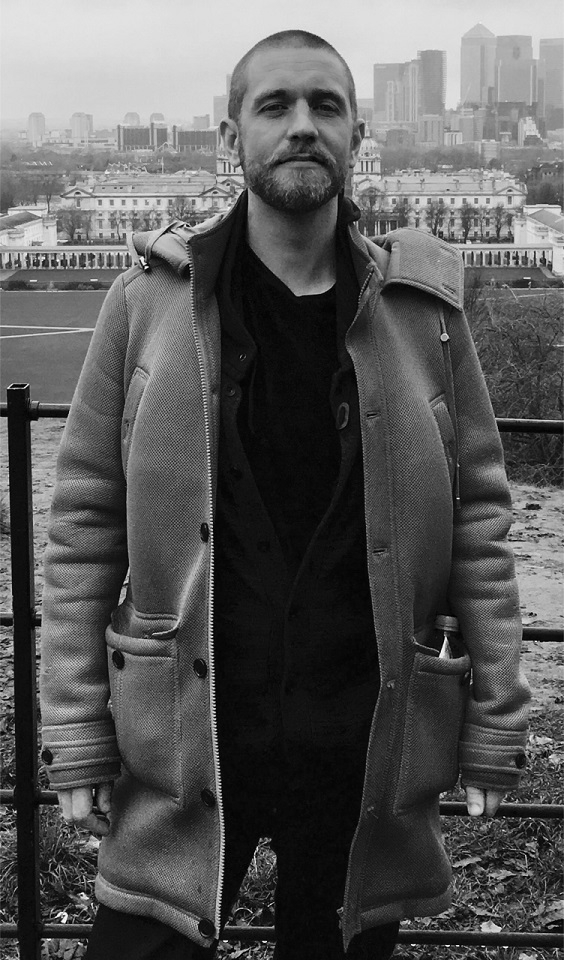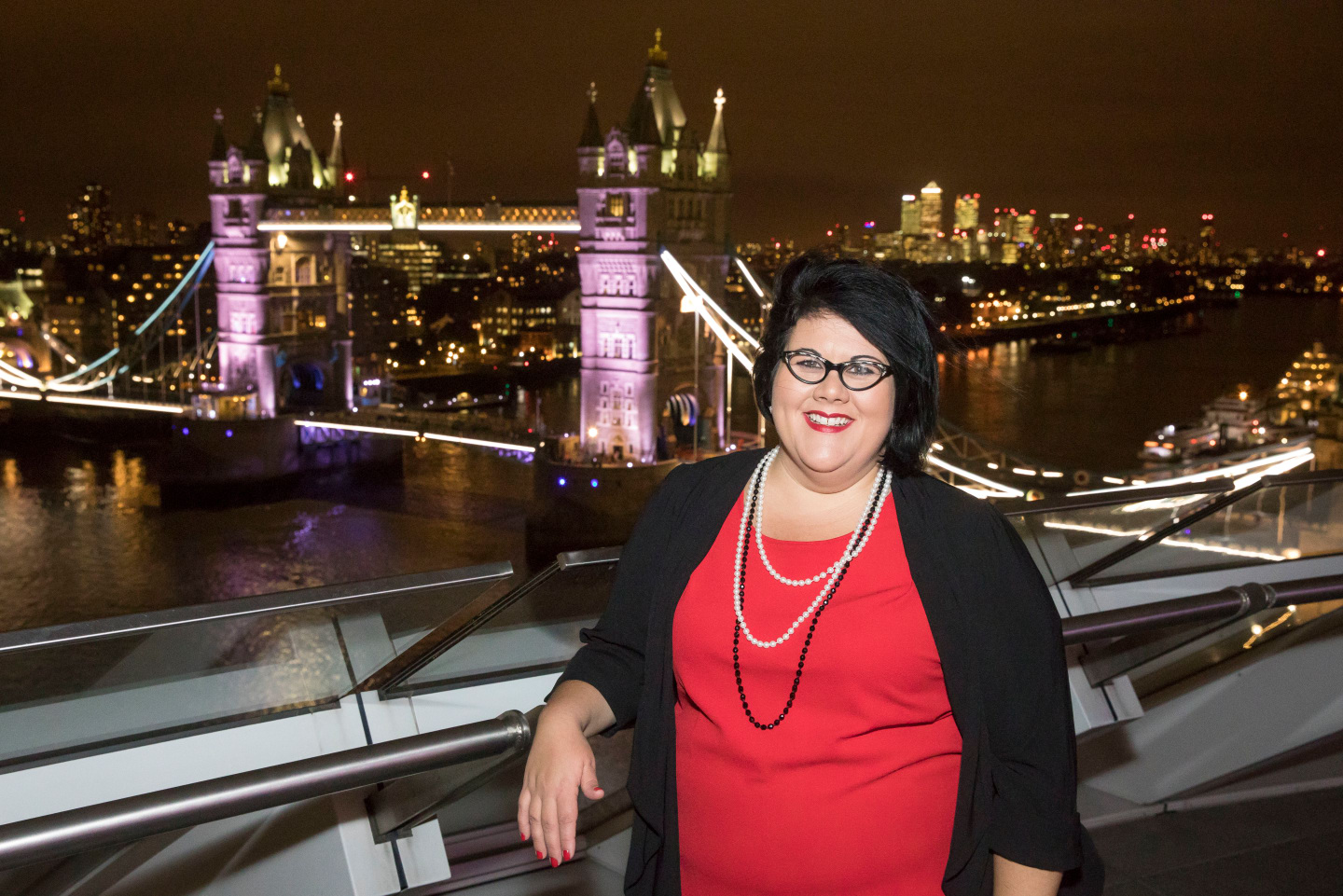
 "The need is becoming ever more present in light of the en masse extinction of London's music venues" - Sam Speiaght on why London needs a music conference
"The need is becoming ever more present in light of the en masse extinction of London's music venues" - Sam Speiaght on why London needs a music conference
This week could well see London’s nightlife industry change forever, as the debut London Music Conference kicks off for three days from Thursday.
Shining a spotlight on the capital's nightlife scene, the LMC will host a range of talks, showcases, and masterclasses in several venues across London with industry figureheads.
The event aims to bring the huge London scene together that the organiser, Sam Speaight “hopes to revitalise ... through community, education, exploration and engagement.” Ahead of it’s debut, we had a chat with Speaight about the conference, why London’s scene needs one and what to expect if you get down there.

Hey, what was your first thought this morning?
Please no, not another email about London Music Conference!
What’s got you motivated right now? What's it motivating you to do?
We're motivated by success, we're addicted to it, and we're all about empowering the artists and fans we work with to make music business and the culture that surrounds it thrive.
You’re the director of the London Music Conference, which will start its debut year next week. The first question for this is, why?
In my humble opinion the music business in London has needed an event like this for a long time, however, the need is becoming ever more present in light of the en masse extinction of London's music venues, gentrification of artistic districts and the disintegration of culture this causes along with the exacerbating effect of the internet age slowly eroding the revenues that artists have traditionally relied on to survive. London Music Conference is an answer to this ever-increasing disruption to our industry and hopes to revitalise it through community, education, exploration and engagement.
In an article you wrote about the issue of London nightlife you quote community as a sort of saviour of the scene. This idea of community is, you say, at the core of the conference’s ‘why’. What is the London music community lacking and how will the conference bridge this gap?
The phenomenon that truly characterises the lack of community in the UK music scene is its failure to pro-create. It took the intercession of Boris Johnson, a hard line Tory conservative and someone who represents the opposite outlook of most people in the industry, to step in and save Ministry Of Sound from closure. Across the city, venue after venue breathes a last gasp and goes under while we as an industry stand aside and look like rabbits in the proverbial head lights. The captains of any other industry faced with this travesty would band together, create a strategy to win and fight tooth and nail to protect their patch because, as we all know, together we are strong. Not so in the music business. The inherent lack of close community ties makes truly effective cooperation outside the 'tribe' or immediate network groups seemingly impossible. A notable example I've seen that defies this trend is Shoreditch House. I’ve been a member there for about 6 years. I have made some of my most important contacts in this space that have led to my accessing some very important business opportunities, simply by being an active and vocal part of this community. I believe that if you can harness the spirit of unity that exists around the love of music that we all share and help foster it within the industry at large, everyone will benefit. The industry as a whole will sustain itself and life in music business, which is challenging at the best of times, will be a much better thing than it is today for fans and artists alike.

Amy Lamé, London's appointed Night Czar.
London has been trying to stop the current trend in its cultural circles, appointing a Night Czar as example. Clearly this hasn’t been enough though, what can City Hall do to help preserve and grow London’s cultural centres?
There's certainly a will to change at a government level but we need to be the agents of this change if we're to redefine the status quo. When Sadiq Khan took office he set out an ambitious plan to develop Creative Enterprise Zones across London, parts of the city where artist studios and creative spaces would be preserved and financially fortified by rules laid down by the GLA. Quoting Mr Khan's press release "this ground-breaking new initiative will help creatives put down roots, establish themselves in local areas, attract new artists and creative businesses, and develop skills in local people". This is a good (yet woefully inadequate) example of what London needs if its creative soul is to avoid being scoured away by the whitewashing effect of gentrification. I feel that the industry as a whole needs to mobilise at a government level to protect our venues, businesses and culture before it’s too late. Cities like Paris and Amsterdam make vast investments in the sustenance of creative culture because the creative communities in these cities demand it. Yet London, Europe's greatest cultural spawning ground, seems to be letting its artists rot and fade into obscurity while the local authorities bow down to the developers and roll out the corporate red carpet for fat cat capitalists to steam roll the city's creatives with yet another new built tower block nightmare. Before the recent closure of the longest established venue in Shoreditch, Bedroom Bar, the landlord doubled the rent on the business owners who ran the venue, overnight. This would never happen in a city like Amsterdam, where rents are strictly controlled to safeguard the prosperity of artisans. As a result the Dutch music business is thriving, and has produced more successful music exports than any other city in Europe but London. It’s about time we let the politics know that our business community has helped to define Britain's national identity by its creative output and that this sort of thing can’t go on any longer.
There are already lots of electronic music conferences, ADE, Sonar, IMS, WMC, even the Brighton Music Conference - London’s late to the party, in your mind why is that?
Again I think this comes about as lack of healthy approach to cooperation and self-sustenance. Amsterdam Dance Event is like a city-wide celebration where everyone who works in the local industry celebrates their oneness by coming together and creating something amazing. You can feel the sense of oneness and price in their community when you speak to the locals about their involvement in it. London has all this potential and much much more, that stiff upper lip just needs to get a little softer.
Has the city missed opportunities as it doesn’t have a conference?
To quote a famous British rock star, "don’t look back in anger". We've had such a phenomenal response from London's music community to this event that the future potential of this project is far too exciting to think about what might have been lost in the past.

What will be happening at the LMC?
We have 65 events included in the conference schedule, we just added 2 more today even though we said no more a week ago! We've genuinely tried to develop a wide range of conference content that is immediately useful to artists and industry professionals, events that we hope will have an instant effect on improving their businesses, helping them to make better music and create closer networks.
The schedule for the three days is pretty packed! Full of quality stuff, are there any talks, showcases or events that you are particularly looking forward to or think will be interesting?
The Virtual Reality Jam panel will unveil some crazy new technology that will blow your mind and could redefine the very concept of a live music performance. The 'Secrets To Success: Artist Management' panel with Nick Halkes (he signed The Prodigy) and Mike Gillespie (he manages Underworld) is another 'must see' panel event.
Why is London’s nightlife so important to you?
As a young DJ and club promoter growing up in Sydney every cultural trend that influenced the music I made and played came from London. London was revered as the Mecca of music, the Eldorado of EDM. Every Saturday morning bright and early I’d be waiting at the local record store (we only had vinyl back then) for the store clerks to unbox the latest shipment of wax from London so I could get my greedy little mits on it. Years later I brought dozens of British DJ's to Australian shores as a music agent and became ever more enthralled by the cultural explosion that was erupting from London (and to a lesser degree, Brighton and Bristol) and landing on my doorstep. By this time in my life Sydney music culture had become almost like a mirror for what went on here. When I finally arrived in the city just under 10 years ago to set up the London branch of my little Aussie music company it was like arriving at the gates of heaven. Since then I’ve felt a sense of humble, almost daunted admiration for the stunning depth of musical talent that exists here, not just in the electronic music scene but right across the musical spectrum. As a music lover and culture junkie, there simply is no other place for me to be.
What were/are your favourite events / venues / clubs in the city? What are you favourite memories from them?
Ewer Street Warehouse raves from promoters likes Spectrum and Pryda. The old Cable Nightclub, UKF's DnB parties circa 2016. Drumcode's Halloween parties at Tobacco Dock, Suffolk Street Warehouse (too many to name!) NTS parties in East London, I could go on but I don't want to play favourites!
Describe how you’d like to see London’s nightlife in 5 years’ time?
Party paradise.

Tickets for London Music Conference are still available - Buy
